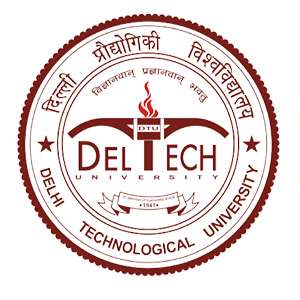Delhi Technological University (DTU) (MA Economics through CUET-PG)
The MA Economics programme offered at USME,DTU has a strong foundation in core economics and leverages the University’s strengths in analytics and management by giving an option to study up to 3 electives from MBA (Business Analytics) and 4 optional audit courses in management (MBA). The students will get a chance to choose discipline-specific electives from cutting-edge emerging streams in economics such as Behavioural Economics, GIS and Remote Sensing, Spatial Econometrics, Energy Economics, Health Economics, Analytics, Applied Quantitative Finance and Emerging Financial Markets. The programme includes mandatory workshops on key economic/financial databases (NSSO, NFHS, ASI, CMIE, Eikon) as well as on hands on workshops/lab based courses in data extraction, visualization, analytics, modelling, simulation, primary data collection and analysis. The programme will offer an immersive industry exposure through projects and interactions.
DTU MA Economics Admission Procedure
Admission is through an entrance test. (CUET PG 2024)
Eligibility Criteria for DTU MA Economics
Applicants must have completed their undergraduate studies in any field from a recognized university with a minimum aggregate of 50% marks or an equivalent CGPA. Candidates belonging to SC/ST/PwD categories are eligible with a relaxation of 5% in the minimum qualifying marks.
No. of Seats for DTU MA Economics
The program has a total of 60 seats available.
Fees for DTU MA Economics
The annual tuition fees is approx INR 20000
Economics (COQP10) Syllabus for CUET PG 2024
Microeconomics
Consumer Theory:
Demand, Utility, Indifference Curve, Revealed Preference Theory, Consumer Surplus. Production Theory: Production Function, Law of Variable Proportions, Returns to Scale, Cost Function.
Price and Output Determination in Markets:
Perfect and Imperfect Competition, Monopoly, Price Discrimination, Monopolistic, Duopoly, and Oligopoly models, General Equilibrium, Efficiency, and Welfare.
Macroeconomics:
National Income Accounting. Income and Output Determination: Aggregate Demand and Aggregate Supply, Effective Demand Principle, Classical and Keynesian Theory.
Money and Inflation:
Demand and Supply of Money, Money Multiplier, Credit Creation, Role of Reserve Bank of India, Quantitative Theories of Money, Philip’s Curve, Monetary and Fiscal Policy of India.
Consumption and Investment Function:
Permanent, Relative, and Life Cycle Hypothesis, Multiplier and Accelerator.
Open Economy Models:
Mundell and Fleming Model, Balance of Payments, Exchange Rate Determination, Purchasing Power Parity.
Economic Growth:
Harrod-Domar Model, Solow Model.
Statistical Methods in Economics:
Mean, Mode, Median, Dispersion, Skewness, Quartile Deviation, Average Deviation, Standard Deviation. Correlation.
Mathematical Methods in Economics:
Sets and Vectors. Functions of one and several real variables, Single and Multi-variable optimization, Integration of functions.
Difference equations, Determinants, Matrix. Linear Programming, Probability, Differential Equations.
Indian Economy:
Overview of Colonial Economy: Macro Trends, Agriculture, Railways, and Industry, Economy and State in the Imperial Context.
New Economic Policy.
Public Economics: Public and Private Goods, Externalities, Budget, Deficits, Public Debt, Fiscal Federalism in India, Taxation.
International Trade Theories: Adam Smith, Ricardo, Heckscher-Ohlin model, and New Trade Theories.
A more detailed syllabus has been included in our Blogs.
CUET PG Entrance Exam Paper Pattern and Marking Scheme
1.This paper contains One Section. It contains Domain Specific area comprising of 75 MCQs
2.Total No of Questions- 75
3.Marking Scheme:
4 marks will be awarded for each correct response.
1 mark will be deducted for each incorrect response.
Total Time Allotted : 105 Minutes
Placements after MA Economics from DTU
The placement cell at DTU offers career guidance programs from the first semester and conducts activities such as personality profiling, mock interviews, group discussions, and business simulations to enhance students’ professional competencies. The university has a strong record of recruiters, including EY, Deloitte, KPMG, PwC, Flipkart, Paytm, Genpact, ICICI Bank, and many more.



